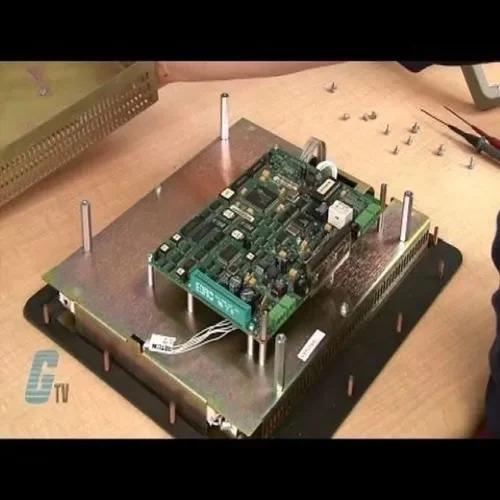Servo motors are critical components in industrial automation, providing precise control over motion in various applications. Mastering servo motor repair requires a combination of technical expertise, meticulous attention to detail, and adherence to best practices to ensure optimal performance and longevity.
Diagnostic Expertise:
Effective servo motor repair begins with accurate diagnostics. Technicians must possess the skills to identify and analyze symptoms such as erratic movement, excessive heat generation, or encoder feedback issues. Utilizing advanced diagnostic tools and techniques, such as oscilloscopes and signal analyzers, enables technicians to pinpoint root causes swiftly, facilitating targeted repair efforts.
Component Evaluation and Replacement:
Thorough evaluation of servo motor components is crucial for successful repairs. Technicians meticulously inspect components such as bearings, shafts, encoders, and wiring harnesses for signs of wear, damage, or misalignment. High-quality replacement parts, preferably OEM or certified equivalents, ensure compatibility and reliability, minimizing the risk of premature failures and optimizing motor performance.
Precision Repair Techniques:
Executing precise repair techniques is essential to restore servo motor functionality effectively. This may include disassembly, cleaning, lubrication, and reassembly with meticulous attention to torque specifications and alignment. Repairing or replacing damaged components, such as brushes, commutators, or windings, requires precision to maintain motor efficiency and operational integrity.
Testing and Calibration:
Comprehensive testing and calibration validate the effectiveness of repairs and ensure servo motor performance meets specified parameters. Technicians conduct thorough tests, including load testing, encoder feedback calibration, and servo loop tuning, to verify smooth operation and accurate motion control. Calibration adjustments fine-tune parameters to optimize motor response and accuracy in various operating conditions.
Documentation and Quality Assurance:
Maintaining detailed documentation throughout the repair process is essential for traceability and quality assurance. Technicians document diagnostic findings, repair procedures, parts used, and testing results meticulously. This documentation facilitates continuous improvement, supports warranty claims, and provides valuable insights for future maintenance and troubleshooting.
Continuous Learning and Improvement:
Continuous learning and skills development are integral to mastering servo motor repair. Technicians stay updated with industry advancements, emerging technologies, and manufacturer-specific updates through regular training programs and professional development opportunities. Enhancing technical proficiency and staying abreast of best practices empower technicians to deliver high-quality repairs consistently, minimizing downtime and optimizing operational efficiency.
Conclusion:
Mastering servo motor repair demands a comprehensive understanding of diagnostic techniques, precision repair methodologies, rigorous testing, meticulous documentation, and servo motor repair continuous improvement initiatives. By adopting these essential techniques and practices, organizations can enhance servo motor reliability, extend operational lifespan, and maintain precise motion control in industrial automation applications. Prioritizing excellence in servo motor repair not only ensures consistent performance but also supports sustainable productivity and operational excellence in diverse industrial environments.
Follow Us More Links:-
Follow Us On Facebook:- https://www.facebook.com/synchronics
Follow Us On Twitter:- https://x.com/synchronics
Follow Us On Instagram:- https://www.instagram.com/synchronicselectronics/
Follow Us On Linkedin:- https://in.linkedin.com/company/synchronics
Address:- 4th Floor, Lotus Enora, Opp. Rutu Villa Bunglows, 24 Mt. Main Road, New Alkapuri, Gotri, Vadodara 390 021, Gujarat (INDIA)
Call Us:- +91-704-308-4455 || +91-704-309-4455 || +91-265-400-1555 || +91-265-356-1183
Email Us:- [email protected]





Comments